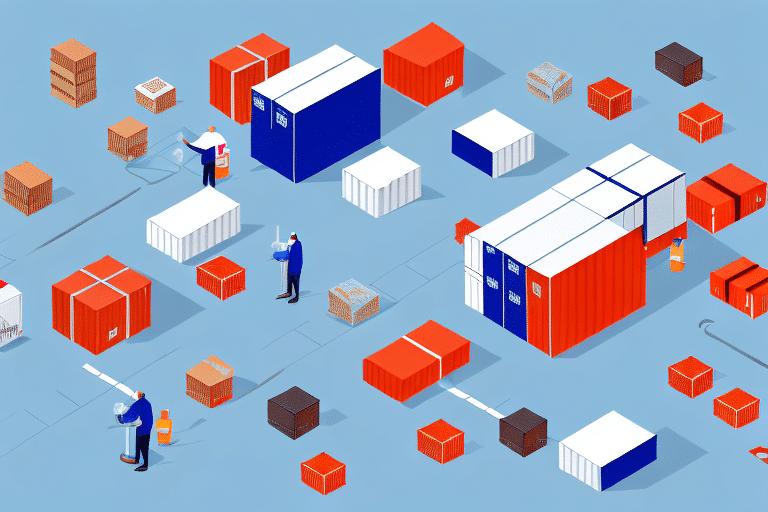Understanding 3PL: A Comprehensive Guide for Ecommerce Businesses
In the rapidly evolving world of ecommerce, efficient order fulfillment is crucial for maintaining customer satisfaction and competitive advantage. Third-Party Logistics (3PL) providers offer a strategic solution by managing the logistics of warehousing, inventory management, order processing, and shipping. This guide delves into the essentials of 3PL, its benefits, selection criteria, and best practices to help your ecommerce business thrive.
What is 3PL and Its Importance for Ecommerce
Third-Party Logistics (3PL) refers to the outsourcing of ecommerce logistics operations to external service providers. By leveraging 3PL services, businesses can efficiently manage tasks such as warehousing, inventory control, order fulfillment, and shipping without the need to invest heavily in infrastructure.
Key Functions of 3PL Providers
- Warehousing and Storage
- Inventory Management
- Order Processing and Fulfillment
- Shipping and Distribution
- Returns Management
According to a Statista report, the global 3PL market is projected to reach $1.3 trillion by 2025, highlighting its growing significance in the ecommerce sector.
Benefits of Outsourcing to a 3PL Provider
Outsourcing logistics to a 3PL provider offers numerous advantages that can enhance your business operations and profitability.
Cost Savings
3PL providers can reduce your operational costs by leveraging their expertise, economies of scale, and advanced technologies. This often results in lower shipping rates and reduced overhead expenses related to warehousing and staffing.
Scalability and Flexibility
As your business grows, a reliable 3PL provider can seamlessly scale operations to accommodate increased order volumes, seasonal spikes, and market expansion without significant delays or disruptions.
Enhanced Customer Experience
With faster shipping options, accurate order fulfillment, and efficient returns management, 3PL providers help improve customer satisfaction and loyalty. According to a Forbes article, businesses utilizing 3PL services report higher customer retention rates.
How to Choose the Right 3PL Provider
Selecting the appropriate 3PL partner is critical to ensuring seamless integration and optimal performance. Consider the following factors when making your decision:
Reputation and Reliability
Research the provider's track record, client testimonials, and industry reputation. A reputable 3PL partner should demonstrate consistent performance and reliability.
Technology and Integration
Ensure that the 3PL provider employs advanced technologies, such as real-time inventory tracking, automated order processing, and seamless ecommerce platform integration. Compatibility with your existing systems is essential for smooth operations.
Geographical Coverage
Choose a provider with strategically located warehouses to minimize shipping times and costs. Consider the proximity to your target markets to enhance delivery efficiency.
Service Offerings
Evaluate the range of services offered, including packaging customization, international shipping, and returns handling. Align these services with your business needs to ensure comprehensive support.
Cost Structure
Understand the provider's pricing model, including fees for storage, handling, shipping, and any additional services. Compare costs across multiple providers to ensure competitiveness and transparency.
Key Features of an Effective 3PL Provider
An effective 3PL provider should offer a suite of features that align with your business objectives and enhance operational efficiency.
Advanced Technology Solutions
Look for providers that utilize cutting-edge technologies such as Warehouse Management Systems (WMS), Transportation Management Systems (TMS), and data analytics to optimize logistics processes.
Comprehensive Customer Support
Reliable customer service, including dedicated account managers and 24/7 support, is essential for addressing issues promptly and maintaining smooth operations.
Customization and Flexibility
The ability to tailor services to your specific requirements, such as customized packaging or specialized handling, ensures that your unique business needs are met effectively.
Security and Compliance
Ensure that the provider adheres to industry standards and regulations, including data security, inventory accuracy, and compliance with shipping laws.
Integrating 3PL Services with Your Ecommerce Store
Seamless integration between your ecommerce platform and 3PL provider is crucial for efficient order fulfillment and inventory management.
API Integration
Utilize Application Programming Interfaces (APIs) to connect your online store with the 3PL's systems. This facilitates real-time data exchange, automates order processing, and minimizes manual errors.
Platform Compatibility
Ensure that the 3PL provider supports integration with your ecommerce platform, whether it's Shopify, WooCommerce, Magento, or others. Compatibility enhances operational efficiency and reduces integration complexities.
Data Synchronization
Maintain accurate inventory levels and order statuses by ensuring that data is consistently synchronized between your store and the 3PL provider's systems.
Success Metrics and Best Practices When Using a 3PL
To maximize the benefits of 3PL services, it's essential to track key performance indicators (KPIs) and implement best practices.
Key Performance Indicators (KPIs)
- Order Accuracy: Measure the percentage of orders fulfilled correctly to ensure customer satisfaction.
- Shipping Times: Track the average time taken from order placement to delivery.
- Inventory Turnover: Analyze how quickly inventory is sold and replaced over a specific period.
- Cost per Order: Calculate the total fulfillment costs divided by the number of orders processed.
- Customer Satisfaction: Use surveys and feedback to assess customer experiences related to fulfillment.
Best Practices
- Maintain Open Communication: Foster a transparent relationship with your 3PL provider through regular updates and meetings.
- Set Clear Expectations: Define service level agreements (SLAs) outlining performance standards and responsibilities.
- Monitor Performance: Regularly review KPIs and provide feedback to your 3PL provider to drive continuous improvement.
- Integrate Systems: Ensure seamless data integration to enhance operational efficiency and accuracy.
- Plan for Scalability: Collaborate with your 3PL provider to develop strategies that accommodate business growth and seasonal fluctuations.
Common Mistakes to Avoid When Outsourcing Fulfillment
While 3PL providers offer significant advantages, avoiding common pitfalls ensures a successful partnership.
Lack of Due Diligence
Failing to thoroughly research and vet potential 3PL providers can lead to mismatched expectations and operational issues.
Poor Communication
Inadequate communication can result in misunderstandings, delayed orders, and decreased customer satisfaction. Establish clear communication channels and protocols.
Ignoring Performance Metrics
Neglecting to monitor and analyze key performance indicators can prevent you from identifying and addressing fulfillment inefficiencies.
Overlooking Contract Details
Carefully review contract terms, including pricing structures, service level agreements, and termination clauses to avoid future conflicts.
Neglecting Flexibility
Ensure that your 3PL provider can adapt to your changing business needs and market dynamics to support long-term growth.
Scaling Your Ecommerce Business with 3PL Partners
Partnering with a reliable 3PL provider can significantly facilitate the scaling of your ecommerce business. Here's how:
Expanding Product Lines
3PL providers offer the infrastructure and expertise to handle a diverse range of products, enabling you to expand your offerings without logistical constraints.
Entering New Markets
With geographically dispersed warehouses, 3PL providers can help you efficiently enter and serve new regional and international markets.
Enhancing Operational Efficiency
By automating and streamlining fulfillment processes, 3PL partners allow you to focus on strategic initiatives such as marketing, product development, and customer engagement.
Adapting to Market Changes
3PL providers offer the flexibility to adjust your fulfillment operations in response to market trends, seasonal demands, and business fluctuations.
Case Studies: Ecommerce Success Stories with 3PL Fulfillment
Examining real-life examples of businesses that have effectively utilized 3PL services can provide valuable insights and inspiration.
Amazon
Amazon’s extensive use of 3PL services through its Fulfillment by Amazon (FBA) program showcases how large-scale logistics operations can enhance customer satisfaction and operational efficiency.
Gymshark
The fitness apparel brand Gymshark leveraged 3PL providers to manage international order fulfillment, enabling rapid global expansion and consistent delivery experiences.
Etsy Sellers
Independent Etsy sellers often partner with 3PL providers to handle increased order volumes during peak seasons, ensuring timely deliveries and maintaining customer trust.
By studying these case studies, ecommerce businesses can identify best practices and strategies to optimize their own fulfillment processes and achieve sustainable growth.
Conclusion
Integrating a 3PL provider into your ecommerce operations can revolutionize your order fulfillment process, offering cost savings, scalability, and enhanced customer satisfaction. By carefully selecting the right partner, leveraging advanced technologies, and adhering to best practices, your business can achieve operational excellence and sustain long-term success in the competitive ecommerce landscape.






















